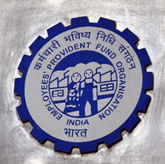

5th November 2022 (6 Topics)
Context
In a crucial judgment, the Supreme Court held the provisions of the Employees’ Pension (Amendment) Scheme 2014 to be legal and valid.
About
About the case:

- The dispute primarily concerned the controversial amendments made to clause 11 of the EPS-1995.
- The Employee's Pension (Amendment) Scheme, 2014 was brought into force through a notification.
- As per the amendment, new members who joined EPF after Sept 1, 2014, with a basic salary of over Rs 15000 per month were excluded from the EPS.
- The Kerala High Court had struck down the amendments, following which the EPFO had appealed in the Supreme Court.
- It held that restricting the pension contribution to Rs 15000 criteria was arbitrary.
- Further, employees were allowed to choose to contribute to pension on higher pay at any point in time and the timeline to exercise such option.
Changes brought after Amendment:
- In the earlier version of EPS-1995, the maximum pensionable salary cap was Rs6,500.
- Members whose salaries exceeded this cap could opt, along with their employers, to contribute up to 8.33% of their actual salaries.
- The amendments raised the cap from Rs6,500 to Rs 15,000.
- But the amendments said only employees, who were existing EPS members as on September 1, 2014, could continue to contribute to the pension fund in accordance with their actual salaries.
- They were given a window of six months to opt for the new pension regime.
- After the amendment additional obligations were created for members, whose salaries exceeded the Rs15,000 ceiling. They had to contribute at the rate of 1.16% of the salary in addition to their EPF contribution.
Key Points of the Judgements:
- The top court said that the employees, who were entitled to join the pension scheme but could not do so as they did not exercise the option within the cut-off date, should be given an additional opportunity.
- The reason cited was the lack of clarity regarding the cut-off date in view of the High Court judgments invalidating the provisions of the Employee's Pension (Amendment) Scheme, 2014.
- Therefore, the Court exercised its powers under Article 142 of the Constitution to extend the cut-off date.
- The provision of the contribution of 1.16% of monthly salary towards pension schemes for, those who earn more than Rs 15,000 per month has been struck down.
Article 142 of the Indian Constitution empowers the Supreme Court's verdicts and rulings to be enforced. It stipulates that in the performance of its jurisdiction, the top court may issue any verdict or order necessary to provide “complete justice” in just about any case before it.
Employees’ Provident Fund Organisation (EPFO)
- It is a government organization that manages the provident fund and pension accounts of member employees and implements the Employees’ Provident Fund and Miscellaneous Provisions Act, 1952 which applies to the whole of India with exemption given only to Jammu & Kashmir.
- The Employees’ Provident Fund and Miscellaneous Provisions Act, of 1952 provides for the institution of provident funds for employees in factories and other establishments.
- It is administered by the Ministry of Labour & Employment, Government of India.
- It is one of the World's largest Social Security Organisations in terms of clientele and the volume of financial transactions undertaken.
More Articles


